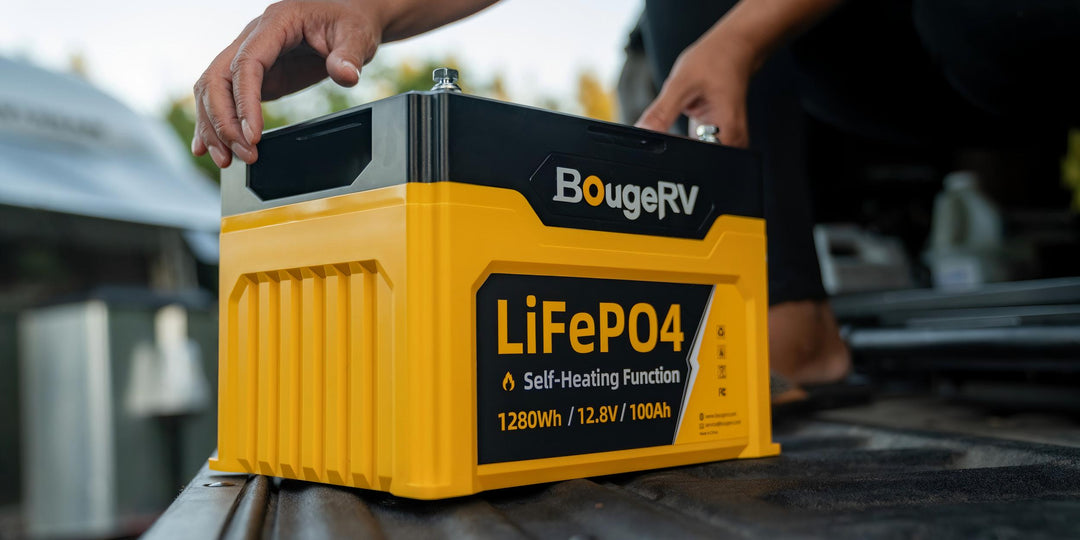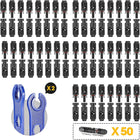How Long Does It Take to Charge a 100Ah Battery with a 300W Solar Panel?

If you’re planning an outdoor adventure or setting up an off-grid system, you’ve probably wondered: how long to charge 100Ah battery with 300W solar panel? Whether you're powering up your RV, camper, or cabin, understanding the charging process is crucial to maximizing the benefits of your solar setup. In this blog, we’ll break it down for you in a simple and friendly way. Let’s dive into the details!
Understanding the Basics: 300W Solar Panel + 100Ah Battery
Before we get into the nitty-gritty of charging times, let’s quickly go over what we’re working with:
300W Solar Panel: A 300W solar panel is a great choice for outdoor enthusiasts. It’s powerful enough to charge batteries efficiently, yet compact enough to be portable. For more information, check out our 300W Solar Panel.
100Ah Battery: A 100Ah lithium iron phosphate (LiFePO4) battery is a reliable energy storage option. It’s lightweight, durable, and perfect for outdoor use. Our 100Ah LiFePO4 Battery is designed to be safe and long-lasting.
Now, let’s figure out how long to charge a 100Ah battery with a 300W solar panel.
How Long Does It Take to Charge a 100Ah Battery with a 300W Solar Panel?
Let’s start with the basics. To determine how long it takes to charge a 100Ah battery with a 300W solar panel, we must consider both the battery's capacity and the solar panel's power output. Under ideal conditions (full sunlight, no energy loss), the calculation looks like this:
-
Battery Capacity: Your 100Ah battery stores 100 amp-hours of energy. Since it’s a 12V battery, the total energy capacity is: 100Ah x 12V = 1200Wh (watt-hours)
-
Solar Panel Output: A 300W solar panel can generate up to 300 watts of power under ideal conditions. In one hour of direct sunlight, it can produce: 300W x 1 hour = 300Wh
-
Charging Time Formula: Divide the battery capacity by the solar panel’s output to estimate the charging time: Charging Time = Battery Capacity (Wh) / Solar Panel Output (W)
For a 100Ah (1200Wh) battery: Charging Time = 1200Wh / 300W = 4 hours
In conclusion, under ideal conditions, it would take approximately 4 hours to fully charge a 100Ah battery by using a 300W solar panel.
Factors That Affect Charging Time for a 100Ah Battery with a 300W Solar Panel

While the ideal charging time is around 4 hours, real-world conditions are rarely perfect. Here are some key factors that can influence how long to charge a 100Ah battery with a 300W solar panel:
Sunlight Hours and Intensity: The amount of sunlight your solar panel receives directly impacts how quickly it can charge your battery. In most outdoor settings, you’ll get around 4-6 peak sunlight hours per day. If you only have 4 peak hours, your panel will produce 1200Wh (300W x 4 hours) in a day.
Solar Panel Efficiency: Solar panels are not 100% efficient. A high-quality panel like ours has an efficiency of around 20%, but lower-quality panels may lose more energy.
Battery State of Charge (SOC): If your battery isn’t fully discharged, it will take less time to charge.
Charge Controller Losses: A charge controller manages and regulates the flow of electricity from the solar panel to the battery, ensuring a safe and efficient charging. Even the best MPPT (Maximum Power Point Tracking) controllers can lose 5-10% of the energy.
Temperature: Extreme heat or cold can reduce the efficiency of both the solar panel and the battery.
Taking these factors into account, a more realistic estimate for charging a 100Ah battery with a 300W solar panel is around 5 to 8 hours of peak sunlight.
Tips for Faster and Safer Charging
If you’re wondering how to reduce the charging time, here are some helpful tips:
Use an MPPT Charge Controller
A charge controller is essential for protecting your battery and optimizing charging efficiency. MPPT controllers are particularly good at maximizing the energy harvested from your solar panel, especially in low-light conditions.
Position Your Solar Panel Correctly
Ensure your solar panel is angled directly toward the sun. In the northern hemisphere, this usually means facing south. Adjust the angle throughout the day to follow the sun’s path for maximum efficiency.
Keep Your Solar Panel Clean
Dirt, dust, and debris can reduce the efficiency of solar panels. Wipe it down regularly with a soft cloth and water.
Monitor Your Battery’s State of Charge
Overcharging or deep discharging your battery can shorten its lifespan. Use a battery monitor or the built-in features of our 100Ah LiFePO4 battery to keep track of its SOC.
Plan for Weather Changes
Cloudy or rainy days will reduce the amount of sunlight your solar panel receives. If you’re camping or off-grid, consider bringing a backup power source or additional solar panels for emergencies.
Conclusion

Now that you know how long to charge a 100Ah battery with a 300W solar panel, it’s time to put your knowledge into action. Explore our 300W Solar Panel and 100Ah LiFePO4 Battery to create your perfect off-grid power solution. If you have any questions, feel free to reach out—we’re here to help you every step of the way.
Here is the best part: If you purchase our solar products now and use the limited-time discount code: SEOBV5, you can enjoy an extra 5% off!
FAQs
1. Can I use a 300W solar panel to charge different types of batteries?
Yes, a 300W solar panel can charge different types of batteries, including lead-acid and lithium batteries. Before beginning the charging process, ensure you’re using the correct charge controller that is compatible with your battery type.
2. What if there isn’t enough sunlight to fully charge my battery?
If sunlight is limited, your battery will store the available energy, allowing you to continue charging the next day. For consistent power, consider adding more solar panels or using a backup power source.
3. Can I run appliances while charging my battery?
Yes, but the energy used by your appliances will reduce the amount of energy stored in the battery. For example, if your solar panel produces 300W and your appliances consume 100W, only 200W will go toward charging the battery.

























































































































































































































